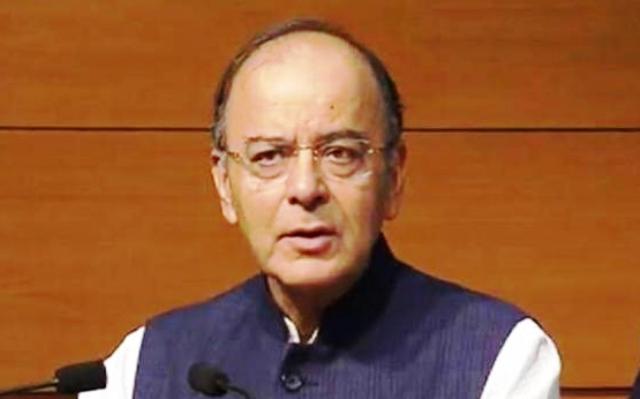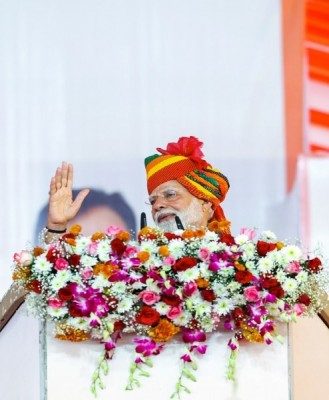
Experts say Rahul's poll promise of ₹72,000 minimum income scheme will ruin fiscal balance
In a desperate bid to promise voters anything to get elected barely two weeks away from the 2019 Lok Sabha Election, Congress president Rahul Gandhi has promised a ₹72,000 per annum minimum income scheme for nearly 25 crore poor families of the country if the party is voted to power under the ambitious minimum income guarantee scheme which the party has named ‘Nyay’.
While the benchmark for determining the eligibility for this largesse remain hazy, back-of-the-envelope calculations show that the union government if led by the Congress will require ₹3.6 trillion annually to make good on Rahul's promise, which is roughly 2% of India’s current GDP if one looks at 2018-19 estimates of ₹190 trillion.
The Congress chief said the scheme ‘Nyay’ was "unprecedented in the world” and will be the Congress' major poll promise ahead of the elections terming it as "a final assault on poverty".
Finance Minister Arun Jaitley has accused him of “bluffing the people”. Jaitely says the scheme is similar to the previous unsuccessful attempts by the party to end poverty and the devil lies in the detail.
When tested on simple arithmetic, ₹72,000 offered is less than two-thirds of the current Direct Benefit Transfer (DBT) provided by the Modi government, which averages to ₹1.068 lakh annually, Jaitely said.

He said that the Modi government has allocated ₹1.84 lakh crore this year under Right to Food Act and other subsidies including ₹75,000 crore in PM Kisan Nidhi and ₹20,000 crore in Ayushman Bharat, that adds to about ₹5.34 lakh crore in annual allocation.
In the last 5 years, the govt. headed by PM @narendramodi introduced DBT through banks. Besides subsidies for food, fertilizer, kerosene, 55 Ministries handed over subsidies to the poor through the DBT which was enabled by AADHAAR. pic.twitter.com/29SQfsaR2J
— Chowkidar Arun Jaitley (@arunjaitley) March 25, 2019
The BBC reported that French economist Thomas Piketty, noted for his work on income inequality, had been rumoured to be advising Congress on the scheme, though he had "not been directly involved in the design of this proposal".
"But I certainly support all efforts to reduce income inequality in India, and especially to move away from the political debate from caste-based political to class-based redistribution of income and wealth," he was quoted saying by BBC.
In recent years there has been much discussion over whether India can introduce a Universal Basic Income (UBI) scheme; a regular unconditional cash payment or direct transfer from the government for all or most citizens.
In 2017, the Indian government's economic survey suggested that a scheme benefitting 75% of the population could significantly reduce poverty. Such schemes have undergone trials at small-scale all over the world, including in Finland, Kenya, and The Netherlands.
The Congress policy, while not a UBI scheme, is seen as a limited version of such a scheme.
The announcement is seen as a bid to fire up voters who will head to the polls in April and May, but economists have warned the policy will be hard to implement in a country as vast and diverse as India.
It remains unclear how the data would be collected and used to determine the eligibility for the NYAY scheme as various estimates on the exact number of poor households in India, and the counts have been mired in controversy. Moreover implementing such a humongous scheme would require scrapping the existing government subsidies on food and fertilizers, and removing certain tax incentives.
“If, God forbid, we get more such schemes from the National Democratic Alliance (NDA) government in order to counter the Rahul Gandhi scheme, we would be looking at a truly frightening fiscal mess over the next two years. The single biggest achievement of the NDA government, low inflation, will be sacrificed at the altar of competitive electoral lunacy.” says senior journalist R. Jagannathan.
Rahul Gandhi said that his party is committed towards the scheme and also added that it is fiscally possible to implement it. “We had successfully implemented MGNREGA. We can implement this scheme as well,” he said.
"This is the second and final operation. We will bring 25 crore people out of poverty. This ground-breaking idea is the final assault on poverty," he said.
Sources in the Congress said that party General Secretary Priyanka Gandhi Vadra was among the leaders who had suggested giving a Hindi name to the ambitious scheme to have better connections with the voters, reports newKerela.
Some economists have voiced criticism of basic income schemes, saying they reduce the incentive to work.
India already has more than 900 federally-funded welfare schemes, including subsidized cooking fuel, affordable healthcare, insurance coverage, cheap food, fertiliser subsidies, rural job guarantee, and student scholarships.
But Congress has insisted its plan is workable.
The Congress’ scheme will “bust fiscal balance”, said Niti Aayog Vice Chairman Rajiv Kumar. “True to its past record of promising the moon to win elections, Congress President announces a scheme that will burst fiscal discipline, create strong incentives against work and which will never be implemented,” Kumar said in a tweet, adding that it will ensure that the real needs of people remain unsatisfied.
Former NITI Aayog vice chairman Arvind Panagariya has said the implementation of ambitious 'Nyay' scheme not only poses a "fiscal challenge" to India's economy but also has a "serious incentive problem".
Panagariya, who served as the first vice chairman of NITI Aayog for two years from 2015 to 2017, told PTI that 'Nyay' is difficult to implement and unlikely to achieve its intended objective.
"It raises three major questions - the incentive compatibility issue, the fairness issue, and fiscal challenge," Panagariya said.
"What happens if one family has an income of only ₹4,000 and another ₹8,000 per month? Will the former then receive ₹8,000 and the latter ₹4,000 per month? If so, why should anyone with income below ₹12,000 do any work at all since their incomes will be ₹12,000 regardless of what they earn?" he asked.
Interpreted this way, "there is a serious incentive problem with the scheme", Panagariya asserted.
The Centre, which has struggled to contain the fiscal deficit, will have to foot the entire bill and so the fiscal concern is justified, said Anit Mukherjee, a policy fellow at the Center for Global Development where he works on issues of governance, public finance and service delivery in developing countries.
What is clear is that almost all parties are now promising big at the last minutes to rope in more votes, and this is a new reality. They must work out how they can do this in a fiscally sensible way.
Support Our Journalism
We cannot do without you.. your contribution supports unbiased journalism
IBNS is not driven by any ism- not wokeism, not racism, not skewed secularism, not hyper right-wing or left liberal ideals, nor by any hardline religious beliefs or hyper nationalism. We want to serve you good old objective news, as they are. We do not judge or preach. We let people decide for themselves. We only try to present factual and well-sourced news.







